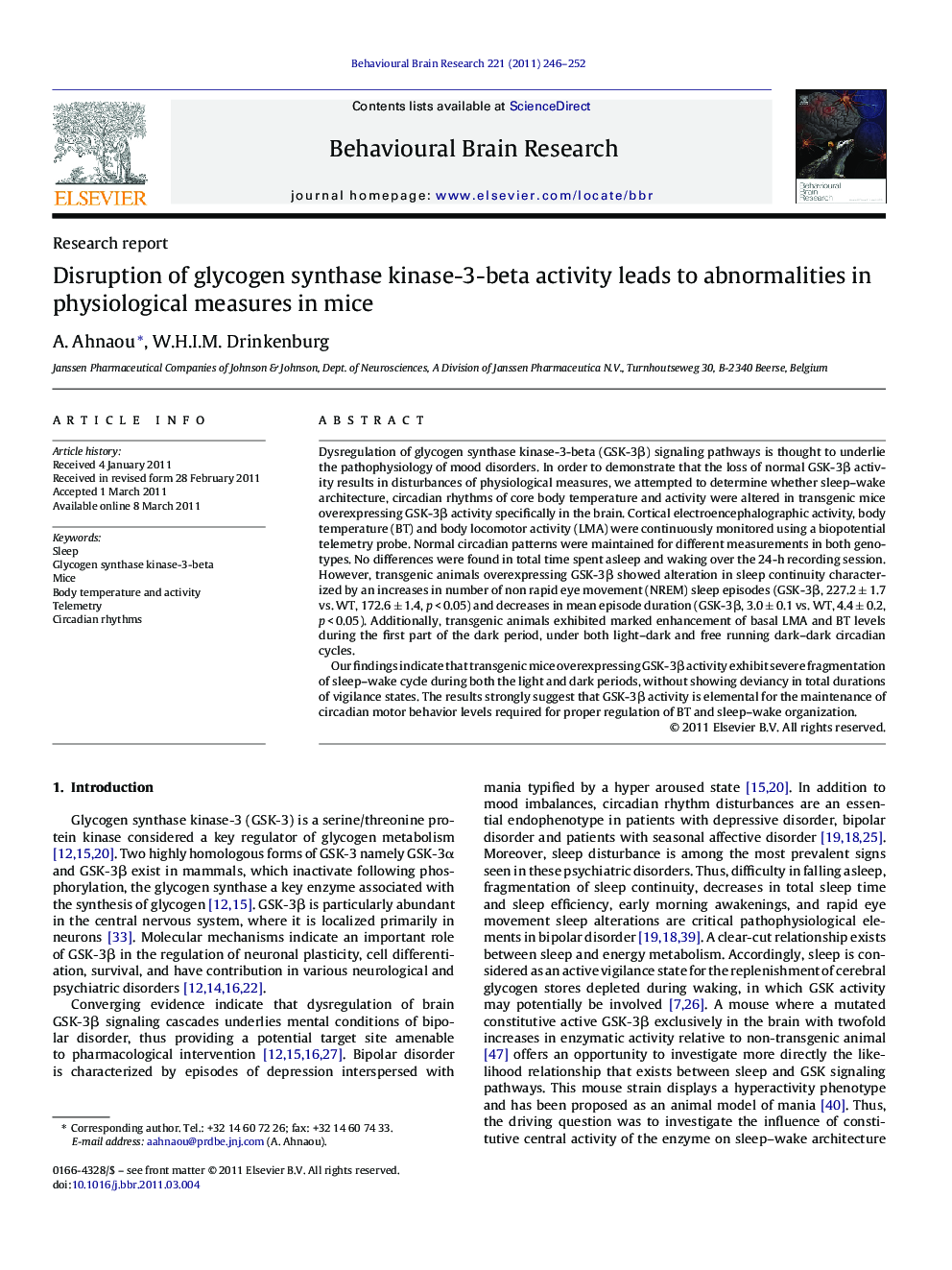| Article ID | Journal | Published Year | Pages | File Type |
|---|---|---|---|---|
| 4313697 | Behavioural Brain Research | 2011 | 7 Pages |
Dysregulation of glycogen synthase kinase-3-beta (GSK-3β) signaling pathways is thought to underlie the pathophysiology of mood disorders. In order to demonstrate that the loss of normal GSK-3β activity results in disturbances of physiological measures, we attempted to determine whether sleep–wake architecture, circadian rhythms of core body temperature and activity were altered in transgenic mice overexpressing GSK-3β activity specifically in the brain. Cortical electroencephalographic activity, body temperature (BT) and body locomotor activity (LMA) were continuously monitored using a biopotential telemetry probe. Normal circadian patterns were maintained for different measurements in both genotypes. No differences were found in total time spent asleep and waking over the 24-h recording session. However, transgenic animals overexpressing GSK-3β showed alteration in sleep continuity characterized by an increases in number of non rapid eye movement (NREM) sleep episodes (GSK-3β, 227.2 ± 1.7 vs. WT, 172.6 ± 1.4, p < 0.05) and decreases in mean episode duration (GSK-3β, 3.0 ± 0.1 vs. WT, 4.4 ± 0.2, p < 0.05). Additionally, transgenic animals exhibited marked enhancement of basal LMA and BT levels during the first part of the dark period, under both light–dark and free running dark–dark circadian cycles.Our findings indicate that transgenic mice overexpressing GSK-3β activity exhibit severe fragmentation of sleep–wake cycle during both the light and dark periods, without showing deviancy in total durations of vigilance states. The results strongly suggest that GSK-3β activity is elemental for the maintenance of circadian motor behavior levels required for proper regulation of BT and sleep–wake organization.
► Dysregulation of GSK-3β signaling pathways underlies the pathophysiology of mood disorders. ► Lithium, a common treatment for bipolar disorder, inhibits GSK-3β as a mechanism of mood stabilization. ► GSK-3β transgenic mice had severe sleep fragmentation, disrupted motor and temperature rhythms. ► GSK-3β plays a role in the organization of sleep cycle and circadian arousal state and temperature. ► GSK-3β transgenic model mimics some of the hyperactivity typical to manic phase of the disease.
